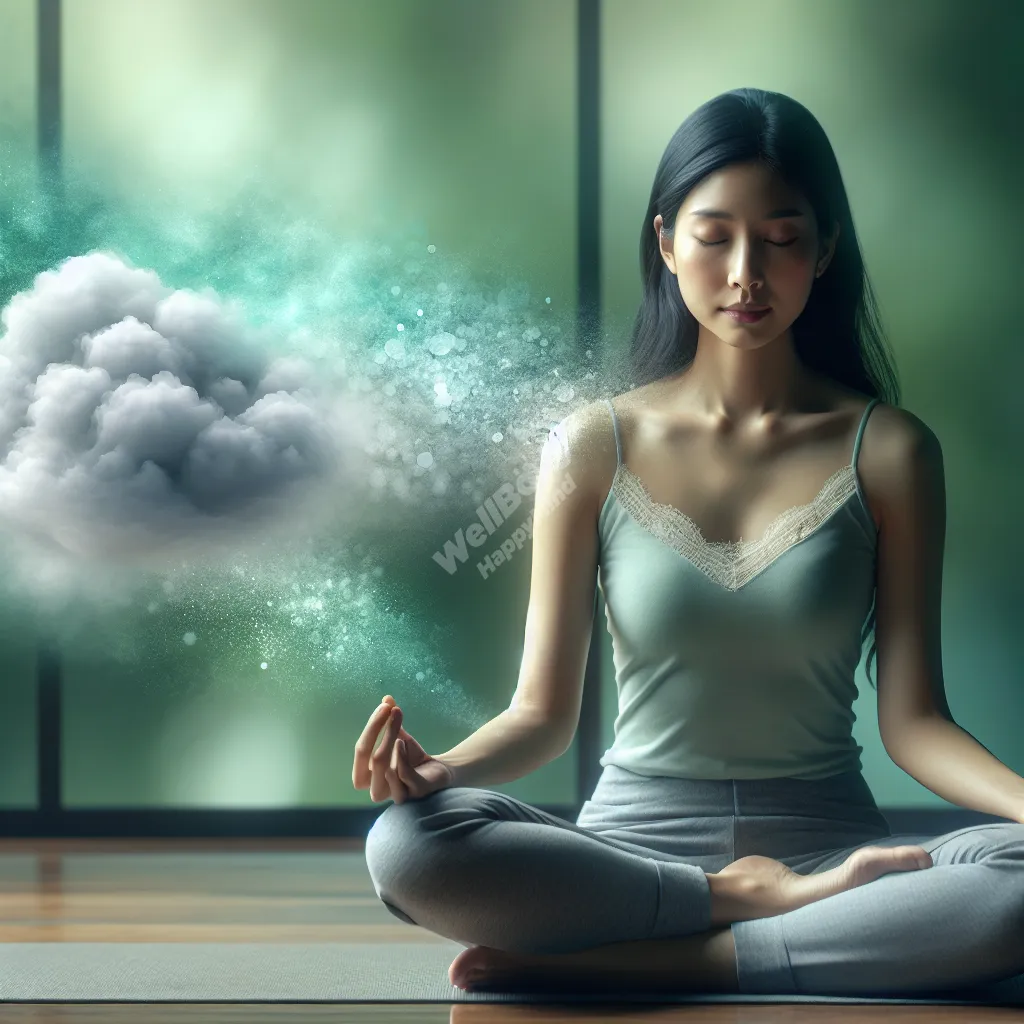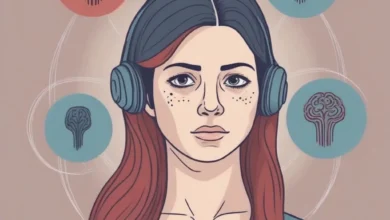8 Natural Remedies for Reducing Anxiety and Depression

Are you looking for ways to ease anxiety or lift your mood without relying solely on medication? You’re not alone. Many people seek natural anxiety remedies and depression relief methods to complement their treatment plans. In this article, we’ll explore eight scientifically-backed natural remedies that can help reduce symptoms of anxiety and depression.
Understanding Anxiety and Depression
Before we dive into the remedies, let’s quickly review what anxiety and depression are:
Anxiety is a feeling of worry, nervousness, or unease about future events or uncertain outcomes.
Depression is a mood disorder characterized by persistent feelings of sadness, hopelessness, and loss of interest in activities.
Both conditions can cause various physical and emotional symptoms, including:
- Restlessness or feeling on edge
- Difficulty concentrating
- Sleep problems
- Changes in appetite
- Fatigue
- Irritability
- Physical aches and pains
While these natural remedies can be helpful, it’s crucial to remember that they should not replace professional diagnosis and treatment. Always consult with a healthcare provider if you’re experiencing symptoms of anxiety or depression.
Now, let’s explore the first three natural remedies that can help alleviate symptoms of anxiety and depression.
1. Regular Exercise: A Natural Mood Booster

Exercise isn’t just good for your body; it’s also a powerful natural anxiety remedy and depression relief method. When you exercise, your brain releases feel-good chemicals called endorphins, which can improve your mood and reduce stress.
Recommended types of exercise:
- Aerobic activities (walking, jogging, swimming)
- Strength training
- Yoga
Tips for incorporating exercise into your daily routine:
- Start small: Even a 10-minute walk can make a difference
- Choose activities you enjoy
- Schedule exercise like any other important appointment
- Find an exercise buddy for motivation and accountability
2. Mindfulness and Meditation: Calming the Mind

Mindfulness and meditation are powerful tools for managing anxiety and depression. These practices help you focus on the present moment, reducing worry about the future or rumination about the past.
Simple meditation techniques for beginners:
- Breathing exercises: Focus on your breath, counting inhales and exhales
- Body scan: Mentally scan your body from head to toe, noticing sensations
- Guided meditation: Use apps or videos for structured meditation sessions
Resources for learning meditation include apps like Headspace or Calm, local meditation classes, or online tutorials.
3. Healthy Sleep Habits: Resetting Your Mental State

Good sleep is crucial for mental health. Poor sleep can worsen anxiety and depression, while improving sleep quality can help alleviate symptoms.
Tips for improving sleep quality:
- Stick to a consistent sleep schedule, even on weekends
- Create a relaxing bedtime routine (e.g., reading, gentle stretching)
- Optimize your sleep environment (cool, dark, quiet)
- Limit screen time before bed
- Avoid caffeine and large meals close to bedtime
If you have persistent sleep issues, such as insomnia or sleep apnea, consider talking to a sleep specialist for targeted solutions.
4. Dietary Changes: Fueling Your Mind and Body

What you eat can significantly impact your mental health. Certain foods may help reduce anxiety and depression symptoms, while others might worsen them.
Foods that may help reduce anxiety and depression:
- Omega-3 rich foods (fatty fish, flaxseeds, chia seeds)
- Complex carbohydrates (whole grains, vegetables)
- Fermented foods (yogurt, kefir, sauerkraut)
- Dark chocolate (in moderation)
- Berries and other antioxidant-rich fruits
Foods to avoid or limit:
- Processed foods
- Sugar and artificial sweeteners
- Alcohol
- Caffeine (especially if you’re sensitive to it)
The gut-brain connection plays a crucial role in mental health. A healthy, balanced diet supports good gut bacteria, which in turn can positively influence mood and mental well-being.
5. Herbal Supplements: Nature’s Mood Enhancers

Some herbal supplements show promise as natural anxiety remedies and depression relief methods. However, it’s important to approach them with caution and always consult a healthcare provider before use.
Potentially beneficial herbs:
- St. John’s Wort: May help with mild to moderate depression
- Ashwagandha: Can reduce stress and anxiety
- Chamomile: May have calming effects
- Lavender: Can help with relaxation and sleep
Safety considerations:
- Herbal supplements can interact with medications
- Quality and potency can vary between brands
- Some herbs may have side effects or be unsuitable for certain conditions
Remember, “natural” doesn’t always mean safe. Always inform your healthcare provider about any supplements you’re taking or considering.
6. Aromatherapy: Scents for Serenity

Aromatherapy uses essential oils to promote relaxation and improve mood. While more research is needed, many people find aromatherapy helpful for managing anxiety and depression symptoms.
Essential oils for anxiety and depression:
- Lavender: Promotes relaxation and better sleep
- Bergamot: May reduce stress and improve mood
- Ylang-ylang: Can help decrease stress and anxiety
- Frankincense: May help reduce stress and negative emotions
Methods of use:
- Diffusers: Spread the scent throughout a room
- Topical application: Mix with a carrier oil and apply to skin (patch test first)
- Baths: Add a few drops to bathwater for a relaxing soak
While aromatherapy can be a pleasant addition to your self-care routine, it shouldn’t replace other treatments for anxiety or depression.
7. Social Connection and Support: The Power of Human Bonds

Strong social connections are vital for mental health. Meaningful relationships can provide emotional support, reduce stress, and increase feelings of belonging and self-worth.
Ways to strengthen social connections:
- Join groups or clubs based on your interests
- Volunteer for a cause you care about
- Reach out to friends and family regularly
- Attend community events or classes
Consider joining support groups for anxiety or depression. These groups offer a safe space to share experiences and coping strategies with others who understand what you’re going through.
8. Spending Time in Nature: Healing in the Great Outdoors

Exposure to nature can significantly improve mental health. Studies show that spending time outdoors can reduce stress, anxiety, and depression symptoms.
Activities to connect with nature:
- Hiking or walking in parks
- Gardening
- Forest bathing (mindful time in forests)
- Beach walks or mountain trips
Even in urban settings, you can incorporate nature into your daily life:
- Keep plants in your home or office
- Visit local parks or gardens
- Watch nature documentaries
- Use nature sounds for relaxation
Implementing Natural Remedies
To get the most benefit from these natural anxiety remedies and depression relief methods:
- Start small: Don’t try to implement all changes at once
- Be consistent: Regular practice yields better results
- Be patient: It may take time to notice improvements
- Combine remedies: Different methods may work synergistically
- Track your progress: Keep a journal to note what works best for you
When to Seek Professional Help
While natural remedies can be beneficial, they may not be sufficient for everyone. Seek professional help if:
- Symptoms persist or worsen
- You have thoughts of self-harm or suicide
- Daily functioning is significantly impaired
- You feel overwhelmed or unable to cope
Remember, natural remedies should complement, not replace, professional treatments like therapy or medication.
Conclusion
These eight natural remedies offer a holistic approach to managing anxiety and depression:
- Regular exercise
- Mindfulness and meditation
- Healthy sleep habits
- Dietary changes
- Herbal supplements
- Aromatherapy
- Social connection and support
- Spending time in nature
By incorporating these strategies into your daily life, you may find relief from anxiety and depression symptoms. Remember, everyone’s journey is unique, and what works best can vary from person to person.
As you explore these natural anxiety remedies and depression relief methods, be kind to yourself and celebrate small victories. Your mental health journey is important, and every step towards well-being counts.
Lastly, always consult with healthcare providers before making significant changes to your treatment plan. They can help you safely integrate natural remedies with any existing treatments for optimal results.
Take the first step today towards a calmer mind and a brighter mood. Your future self will thank you for it.



